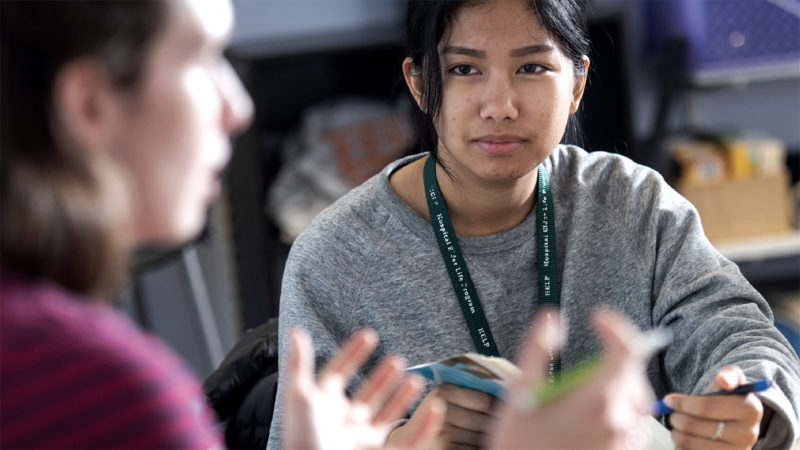Might adolescents possess the key to a revitalized democracy?
By Lowell Libby (Upper School Director)
There is little doubt that extreme political division in America is paralyzing the nation’s ability to meet the many challenges we face and has left our democracy floundering. When encountering people with different viewpoints or who come from different backgrounds than their own, too many are in the habit of recoiling or lashing out. Neither is a productive response, and both deepen the paralyzing divide and erode the efficacy of our democratic institutions. That leaves many adults asking, What should we be teaching our children today so that they are able to create a better future?
Good question, but perhaps it misses the point. A better question might be What can our children teach us so we can make a better today?
Young people are in the process of forming their worldviews and habits of mind. Their identities are fluid in comparison to those of adults. Adolescents have the cognitive capacity to think abstractly and the intellectual power to critique the world around them. They are naturally curious and drawn to novelty. In short, they are predisposed to possess a curious mindset.
At Waynflete, we have created Third Thought Initiatives for Civic Engagement to capitalize on this mindset with an eye toward cultivating tomorrow’s leaders. Third Thought consists of a series of initiatives that instruct young people how to be in productive dialogue, then offers up opportunities to practice with issues that are relevant to them. Some Third Thought initiatives are for Waynflete students, while others engage youth from other schools as well.
The name Third Thought came from the response of a participant in a program that intentionally grouped students with different political viewpoints and life experiences and asked them to draw on their diverse perspectives to develop solutions to some of today’s most pressing problems. At the end of the experience, she was asked what she had learned from encountering differences.
She said she had learned to say her “third thought,” by which she meant that before, when she encountered a viewpoint substantially different from her own, her first thought was often an emotional reaction and her second thought a justification for the first. Neither led to a new understanding of the topic at hand.
But when she took a deep breath and actually listened to the perspectives of others and reflected on her own beliefs, she found that she was able to transcend the either/or thinking that had limited her. Moreover, her peers did the same. By tapping into the expansive wisdom inherent in diverse viewpoints in this way, they evolved their perspectives, deepened their collective understanding of the topic at hand, and developed creative solutions to the complex problems with which they had been wrestling.
Isn’t that how democracy is supposed to work? Imagine the world we could create if more of us were in the habit of reaching for our third thoughts.



